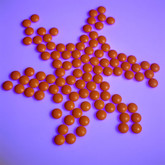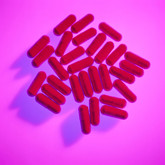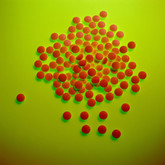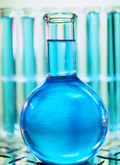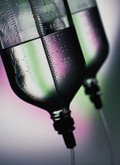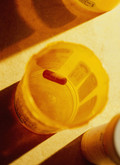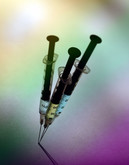Biosimilars
Generics manufacturers and biosimilars
According to a report by the Wall Street Journal on 31 January 2011, generic manufacturers are expecting biosimilars to be the next cash cow, with sums in the multibillions of dollars expected to be reaped from this market in the near future.
Pharmacodynamic response of biosimilar filgrastim
Research published online on 10 March 2011 on the pharmacodynamic response of recombinant human granulocyte colony-stimulating factor (G-CSF) filgrastim has shown that there is no difference between biosimilar and originator G-CSF.
The history of the US biosimilar regulatory pathway
The US, although it now has a legal pathway (with the approval of the Biologics Price Competition and Innovation Act [BPCI Act], which was signed into law on 23 March 2010 by President Barack Obama), does not yet have a practical pathway with guidance defined by the FDA.
Immunogenicity of biosimilar low molecular weight heparins
In a presentation by Professor JM Walenga and colleagues from the Loyola University Medical Center, Illinois,USA, 'immunogenicity issues faced by biosimilar low molecular weight heparins (LMWHs)' were discussed [1].
Comparison of US and European biosimilar regulatory pathways
The EU and the US have some differences in the way they approach biosimilars. Some of these differences were outlined in an article by Mr David Rosen and Mr Larry Lian published on 2 March 2011.
Biosimilar low molecular weight heparins in Brazil
In Brazil, the registration of new drugs is carried out only when the regulatory agency (Agência Nacional de Vigilância Sanitária, Anvisa) is fully satisfied with their quality, efficacy and safety. Likewise for biosimilars it is necessary that the biosimilar be equally effective and safe and without contaminants in relation to the originator medicine.
Everybody jumping on the biosimilars bandwagon
According to a report by Reuters on 13 January 2011, Big Pharma is taking a major interest in the biosimilars market. During interviews with Amgen, Merck, and Biogen Idec at the JP Morgan’s 28th Annual Healthcare Conference in San Francisco, USA, biosimilars was the hot topic.
Global biosimilar market to grow to US$3.7 billion in 2015
According to a report by Datamonitor published on 23 February 2011 the global biosimilars market will grow from US$243 million in 2010 to US$3.7 billion in 2015.
Boehringer Ingelheim acquires Amgen biotech site
Boehringer Ingelheim, one of the world’s leading companies for contract development and manufacturing of biopharmaceuticals, announced on 25 March 2011 that it had formally acquired Amgen’s biopharmaceutical development and manufacturing facility in Fremont, California, USA.
Further lobbying over biosimilars
Brand-name drug companies are trying to weaken a provision of the US Patient Protection and Affordable Care Act that was designed to open up generic competition in biotechnology medicines and save billions of dollars. The industry, patients and providers are watching closely to see how the FDA will interpret the law, in documents that are expected to be released during late 2011.

